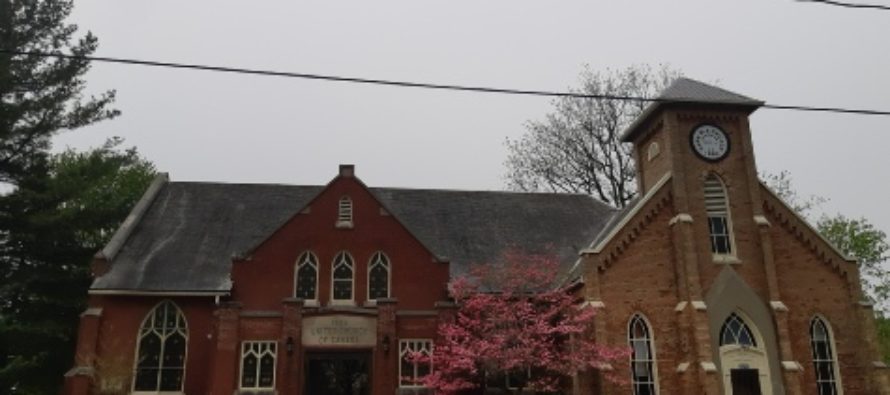The religious background of Halloween

Halloween today, for many people, means candy, costumes and decorations. What some people do not know is the religious background behind the holiday.
Halloween originated as a Pagan Celtic holiday called Samhain (SOW-wen). The name Halloween came from All Hallows Eve, meaning “all holy night“. The religious festival focused on paying respects to the dead, mourning the end of the summer and scaring away negative spirits with carved gourds that would later become known as jack-o-lanterns.
The original holiday was very significant in Pagan religions. However, Samhain, along with many other pagan holidays, were changed to a Christian holiday at a time when Christianity was pushing away pagan traditions. This Christian version is known as All Saints Day.
Today, many people celebrate Halloween differently.
Jim Breen is the Minister at Hope United Church in Alvinston, as well as St. Andrews United Church in Chatham-Kent. Breen said All Saints Day is more of a Catholic or Orthodox tradition, rather than a Protestant one. It was celebrated Nov. 1, the day after All Hallow’s Eve.
“My understanding of All Saint’s Day is that it was a time of celebration,” said Breen. “Celebrating and remembering people who had been good examples, and who had gone to their eternal reward. All Hallow’s Eve was considered to be the opposite.”
Breen also said the meaning of Halloween has changed significantly, especially in North America, and is now more focused on the commercial aspect of the holiday.
“The actual All Hallow’s Eve became preoccupied, of course, with candy and dressing up,” said Breen. “And there are lots of horror movies that come out around Halloween involved with the fear of death. I think the whole point of All Saint’s Day is that death, as believing Christians, is not something we need to be afraid of. ”
Tyler Sharron is the Worship/Young Adults Pastor at Parkwood Gospel Church in Windsor. Sharron said Halloween can be considered offensive by some Christians, but accepted by others.
“I definitely know people at my own church fall on two sides of it,” said Sharron. “Some people think the history is all very evil, and is not something Christians should partake in, while others believe anything can have redemptive purposes and think it should not be avoided. There are also a fair number of families with kids who go out trick-or-treating.”
Sharron also said Christians in other countries and in different cultures can be offended by Halloween as well, sometimes more so than North Americans.
“I’ve especially found people from different cultures take offense,” said Sharron. “A lot of the time, Christians in Indian cultures, African cultures and South American cultures tend to take Halloween much more seriously and try to avoid it.”
Sharron said for Christians taking part in Halloween, though there are no written rules for costumes, there is a general dislike of anything inappropriate.
“There are no Biblical rules about costumes, but there are Biblical suggestions to be modest and appropriate in the way we dress, ” said Sharron. “If somebody wears something revealing, or exceptionally evil or gory, that doesn’t mean they’re automatically not a Christian, but I think the Bible would have something to say about that.”
Despite the world being in a state of uncertainty with the global pandemic, many people will still be trick-or-treating this Oct. 31, and it’s important to remember that the holiday can mean more to people than just candy and costumes.


